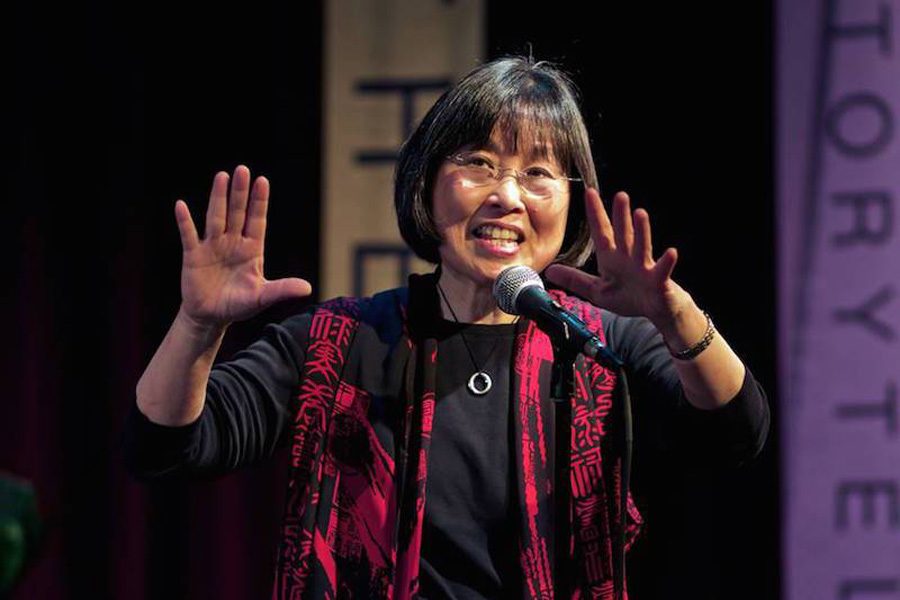Storyteller shares experiences of World War II Japanese-American incarceration at EPL event
Anne Shimojima.
April 10, 2017
Storyteller Anne Shimojima spoke Sunday at the Evanston Public Library about her family’s experience as Japanese Americans during World War II, when they were forcibly expelled from their homes and incarcerated in camps.
Shimojima’s talk was organized by EPL and co-sponsored by North Shore Village, a nonprofit organization that provides educational and cultural programs for the elderly. The event, attended by about 40 people, was the second in a two-part series on Japanese-American history at EPL.
The hour-long story — complete with family photos and documents from the National Archives — spanned four generations and an ocean, recounting how Shimojima’s family came to America and weathered one of the darkest events in American history: the incarceration of Japanese Americans during World War II.
Shimojima said her initial goal was simple — to use her brand-new computer to create a family photo album. But the story grew and grew, she said, especially after Shimojima discovered her grandmother’s collection of photographs and personal papers.
“In my family, we didn’t tell stories about the past … what it was like to be locked up behind barbed wire, even though you had done nothing wrong,” Shimojima said.
Shimojima discussed how two months after Pearl Harbor, with “wartime prejudice and racial hysteria” running high, Franklin D. Roosevelt issued an executive order, which divided the western United States into military zones and permitted the military to move populations at will.
As a result, 122,000 Japanese-American men, women and children were deported to what Shimojima called “incarceration camps.” More than half of them were citizens who had not been charged with any crime.
Shimojima said the impact on her family was immediate — they were expelled from their home and deported to a camp.
“My family was told they had to leave their home,” Shimojima said. “They did not know where they were going, or for how long … they could only take what they could carry.”
Glenview resident Lois Shikami said, as a survivor of the camps, she found Shimojima’s story moving.
“It really got the history down,” she said. “It was very truthful and very touching. I almost felt like crying.”
Shikami is herself a second-generation Japanese American. In 1942, when she was 10 years old, she was incarcerated along with her family. Like Shimojima, she said she has shared her experience with her family and the public.
North Shore Village Program Committee chair Nancy Bashook, who helped plan the event, said she was especially struck by Shimojima’s description of how Japanese Americans persevered even behind barbed wire.
“People made a life for themselves, in the camps,” Bashook said. “You wouldn’t expect that — for them to have schools, and play baseball, and have a life. It’s amazing what people can do, even under those circumstances.”
Shimojima said she thinks the story of the incarceration of Japanese Americans is especially relevant in today’s political climate.
“It is not right to put people in prison because they look like the enemy,” Shimojima said. “I think that it is even more important for me to tell this story today, given what is happening in our country.”
Email: [email protected]


